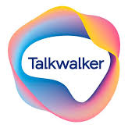12 digital competitive intelligence tools... to keep an eye on your rivals at all times

What's the best competitive intelligence tool?
If you're asking yourself this question, you're already on the right track and have realised just how crucial it is to keep your business going by regularly observing the activities of your competitors and your sector in general. The aim? To use this information to stand out from the crowd and stay on course for success.
But there are a multitude of solutions to help you do this.
So what are the most effective free and paid monitoring tools? To help you do your homework, we've put together a selection of 11 software and applications that address all your competitive intelligence needs. Without further ado, here are all the software applications presented in this article, sorted by type.
 Content Aggregators and Social Network Analysis :
Content Aggregators and Social Network Analysis :
- Feedly : RSS feed aggregator for tracking relevant publications.
- Flipboard : Creation of personalised magazines for customised monitoring.
🗣️ Monitoring and Management of Mentions:
- Mention : Real-time tracking of mentions on various online platforms.
- Talkwalker : Comprehensive analysis of discussions on social networks and the web.
- Google Alerts: Receive alerts on specific terms as soon as they appear.
- Monibrand : Protection against unauthorised use of your brand in ads.
 Traffic and SEO analysis :
Traffic and SEO analysis :
- SimilarWeb Pro : Web traffic analysis tool to compare performance.
- SEMrush : Complete suite for SEO, PPC and content analysis.
 Price and Market Watch :
Price and Market Watch :
- SpyCommerce : Monitor your competitors' prices to adjust your strategy.
 Specialised and Technological Tools :
Specialised and Technological Tools :
- Wappalyzer : Identification of technologies used by competitor sites.
- Visibrain : Real-time monitoring platform to monitor your image and that of your sector.
Comparative table of the best monitoring tools
This comparison table lists all the software discussed in this article. All prices were updated in April 2024.
1 of 7
 Feedly |  Mention |  Monibrand |  SimilarWeb Pro |  SEMrush |  Spycommerce |  Talkwalker |
|---|---|---|---|---|---|---|
| For all companies | For companies with 1 to 5000 employees | For companies with more than 50 employees | For all companies | For all companies | For all companies | For all companies |
| See software | See software | See software | See software | See software | See software | See software |
| Learn more about Feedly | Learn more about Mention | Learn more about Monibrand | Learn more about SimilarWeb Pro | Learn more about SEMrush | Learn more about Spycommerce | Learn more about Talkwalker |
Before you start: How do you carry out competitive intelligence?
Competitive intelligence and monitoring tools: definition and objectives
Competitive intelligence consists of :
- researching all the information online and on the networks associated with your competitors ;
- analysing it to learn valuable lessons and facilitate decision-making.
In an increasingly competitive business world, it seems essential to set up a recurring monitoring process.
There are a number of objectives:
- to keep abreast of major developments in your sector and among your competitors;
- detect new ideas and opportunities
- improve your products or services;
- find inspiration for your marketing and communications operations;
- optimising your brand image, etc.
In short, it's about doing everything you can to make sure you don't fall by the wayside!
In this context, all the tools (free applications, paid software, etc.) that simplify and automate this web monitoring are referred to as monitoring tools.
The basics of competitive intelligence
The most common sources of competitive intelligence are
- Digital channels: Using digital tools such as social networks and e-commerce sites to gather information.
- Specialist firms: Working with companies that provide competitor analysis and reports.
- Internal feedback: Using data collected by the company's sales force.
It is therefore important to clearly identify your sources of information for effective competitive intelligence.
The different types of monitoring are as follows:
- Commercial intelligence: Focuses on customers, suppliers and markets to optimise sales and profits.
- Technology watch: monitors scientific and technical developments to ensure that the company's products and services remain innovative.
- Competitive intelligence incorporates these aspects but focuses specifically on the actions of competitors.
- E-reputation monitoring, to keep an eye on your brand image on the web.
How do you organise your competitive intelligence?
When you start monitoring, beware of spreading yourself too thinly! We recommend that you define your objectives in advance. That way, you'll know exactly what kind of data you're interested in and what type of competitive intelligence to focus on (sales intelligence, media intelligence, price intelligence, technology intelligence, image intelligence, etc.).
At the same time, note that this activity is part of an ongoing process. In other words, to make sure you don't miss out on any key information, always keep an eye on the web (daily, weekly searches, etc.). And that takes a lot of time...
The good news is that competitive intelligence tools are available to simplify the task. So let's cut to the chase and take a look at a complete selection of tools for every purpose!
#1 Feedly, the famous RSS feed aggregator
🤔 What for?
To easily track all content relating to your competitors as well as your business sector, within a single platform.
💡 How it works
Feedly, the famous RSS feed aggregator, has risen to become one of the best-known information monitoring tools.
OK, but what exactly is an RSS feed aggregator? In practical terms, it's a platform that provides you with all the content that interests you, virtually in real time.
All you have to do is enter the keywords you think are relevant, and Feedly will select and prioritise the associated content.
👍 The benefits
- The ability to follow different types of information (online blogs and magazines, media, YouTube channels).
- Artificial intelligence (Leo) that filters and prioritises interesting subjects for you.
- The ability to share content with your colleagues in just a few clicks.
💰 Prices
- Free version, up to 100 feeds organised in up to 3 folders.
- Paid version, with more features, from $6/month.

Feedly
#2 Flipboard, the "personalised magazine
🤔 What for?
To easily track all content relating to your competitors as well as your business sector, within a single platform.
💡 How it works
With this other RSS feed aggregator, create a personalised online magazine, enriched thanks to the type of content you want to follow.
To do this, select themes, or even hashtags. You can also subscribe directly to a particular media outlet or blog.
Finally, Flipboard also supports social networks: alert when a YouTube video is posted, track Twitter hashtags, etc.
👍 The benefits
- A user-friendly interface with a magazine-style design.
- Customisable tool.
- Its social side. For example, you can follow other members.
💰 Rates
Free monitoring tool.
#3 Google Alerts, to stay on top of the news!
🤔 What for?
To be notified as soon as content of interest to you is published online.
💡 How it works
Google Alerts, as its name suggests, is a free competitive intelligence tool that allows you to receive alerts when a relevant topic has just been discussed on the internet and in online news.
How does it work? Tell the solution which keywords you want to track. As soon as they appear on a new page or in the Google feed, an email is sent to you. It's a great way to keep an eye on what's being said about you, your potential competitors and your field of activity.
👍 The benefits
- The power of Google, which indexes millions of pages every day (you're sure not to miss any important information!).
- You can personalise your message: the type of results you're looking for, the number of results, how often you want to receive the email, etc.
💰 Rates
Free monitoring tool.
#4 Mention, the complete information tracking software
🤔 What for?
To easily track key information circulating on the web.
💡 How it works
Mention is another tool designed for tracking news on the web, based on pre-selected keywords. Thanks to its advanced settings, you can refine your search: integrate several queries, exclude certain ones, etc.
What's the difference with Google Alerts, you may ask? The software, especially the paid version, offers a wide range of functions and sources of information, as well as a high degree of automation. Enough to satisfy companies with major competitive intelligence requirements.
👍 The benefits
- Different alert levels available to address all your needs (basic alert, combination of keywords and Boolean operators, full customisation of the watch, etc.).
- Conversation monitoring to examine everything that's being said on a specific topic.
- Numerous sources of information: news sites, forums, blogs, online opinion platforms, Instagram, TikTok, YouTube, Facebook, Twitter, etc.
💰 Prices
- Free version, for testing the solution.
- Paid version, with more features, from €29/month/user.

Mention
#5 Monibrand, to monitor the use of your brand name
🤔 What for?
To monitor your brand and how your competitors are using it on Google Ads.
💡 How it works
Monibrand's search engine competitive intelligence software operates as part of a Google Ads strategy. Its objective? To protect you from " brand squatting ".
More specifically, you determine the keywords and countries to be monitored, then Monibrand locates and analyses the competitors positioned on these keywords in real time. In other words, you spot unscrupulous companies that are using your own brand name to position themselves as part of their paid referencing.
But the tool doesn't stop there. Once these competitors have been identified, an automatic notification system is triggered to ask them to remove the ads in question.
👍 The benefits
- Support from a team of lawyers and experts to make the process easier.
- Advertisers are prioritised according to their importance and the consequences of their actions.
- Geolocalised targeting by city or region.
💰 Rates
From €490 for 100 keywords.

Monibrand
#6 Similarweb, the web traffic analysis tool
🤔 What for?
To retrieve traffic data from sites all over the world, and then analyse it.
💡 How it works
With Similarweb, you keep an eye on your competitors' site traffic as well as their SEO, SEA or social media performance. Then you compare them to your own. This is where the power of the tool lies: allowing you to compare two sites, to detect new trends and examine your own competitiveness in relation to the overall market.
A wide range of data can be analysed, including traffic sources and engagement rates across the various marketing channels. For SEO experts, you can also find out which keywords generate the most traffic to competitor sites.
👍 The benefits
- The functional richness of the tool and the many marketing channels supported.
- Interactive dashboards to optimise management of the data collected.
- The many online resources available to help you get to grips with and use the tool.
💰 Prices
- Free version, for testing the solution.
- Paid version, with more features. Prices on request.

SimilarWeb Pro
#7 SEMrush, the all-in-1 visibility marketing software
🤔 What for?
To analyse online visibility across all marketing and communication channels.
💡 How it works
SEMrush is a very comprehensive strategic intelligence tool, as it incorporates a huge number of features designed for SEO, PPC or even social network marketing.
Among them, discover 5 tools for analysing your competitors, thanks to which you'll be able to track, among other things:
- their traffic
- the performance of their Ads, marketing strategy, SEO and social media.
SEMrush is similar to Similarweb, as mentioned above. However, some experts consider it to be more comprehensive, particularly for activities requiring a highly specialised approach and in-depth audits.
👍 The benefits
- The wide range of functions and the power of the solution.
- Some of the most reliable data on the market, updated daily.
- Upgradeable software, with new features added regularly.
💰 Prices
From $119.95/month for the Pro package.

SEMrush
#8 Ahrefs, the all-in-one toolbox for SEOs
🤔 What for?
To conduct a comprehensive SEO analysis and keep a close eye on backlinks, which is essential for understanding and improving your site's visibility and online positioning.
💡 How it works
Ahrefs is a tool specialising in backlink analysis and SEO auditing. Its features allow you to perform detailed site audits, track keyword rankings, and explore your competitors' link profiles. Here's what you can do with Ahrefs:
- Track the quality and quantity of backlinks.
- Analyse the keywords for which your competitors rank highly.
- Receive notifications of new and lost backlinks.
Ahrefs is often compared to SEMrush for its rich functionality, although it is particularly renowned for its link mining and advanced SEO analysis.
👍 The benefits
- One of the largest backlink databases on the market.
- Frequent data updates for consistently accurate information.
- Comprehensive site audit tool to help identify and correct SEO problems.
💰 Prices
From $99/month for the basic package.
#9 Spy-Commerce, to spy on your competitors' prices
🤔 What for?
To analyse the rates charged by your competitors at a glance.
💡 How it works
Let's switch gears a bit with this price monitoring software. What does it promise? Compare your prices with those of your competitors, in just a few clicks.
To do this, all you have to do is define these competitors, then Spy-Commerce will take care of retrieving your catalogue and theirs, comparing them, and then sending you alerts according to the frequency and criteria configured beforehand. A great way to stay competitive!
👍 The benefits
- A margin gain calculator to increase your prices while remaining cheaper than the competition.
- An automated product matching system based on the criteria you define.
💰 Prices
Prices on request.

Spycommerce
#10 Talkwalker, the No. 1 in social listening and conversational intelligence
🤔 What for?
To analyse everything that's being said on the web and social networks.
💡 How it works
Talkwalker is positioned as a complete tool for real-time analysis of consumer data as well as conversations. This is why it is referred to as conversational intelligence.
More specifically, it offers different modules. Talkwalker Analytics focuses on social listening and detects everything that is said on the web about a specific topic. Talkwalker Social Search is more geared towards social networks, and allows you to follow a competitor or a hashtag. Talkwalker Alerts, available free of charge, is similar to Google Alert and alerts you when a brand is mentioned.
Complete, we tell you!
👍 The benefits
- The most powerful conversational monitoring tool on the market.
- Detection and analysis of visual mentions, practical for social networks such as Instagram!
- The quality and reliability of the data collected and analysed.
💰 Prices
- Free version, for testing the solution.
- Paid version, with more features. Prices on request.

Talkwalker
#11 Visibrain, the real-time intelligence platform
🤔 What for?
To help brands and organisations protect their brand image and manage their influence.
💡 How it works
Visibrain is monitoring software that enables businesses to analyse and understand their online presence, as well as that of their market, sector and competitors.
With this tool, you can monitor conversations in real time on social networks, blogs and online media. Creating a monitoring topic is as easy as a few clicks! The technology developed by Visibrain and its advanced filtering and sorting system enable information from social networks to be processed and transformed into actionable insights.
👍 The benefits
- real-time monitoring of your online presence and that of your sector (social networks, blogs and online media),
- identify influencers who match your needs
- alerts by SMS, email, Slack or Telegram to be notified as soon as news or buzz emerges on your subjects (brand, sector, competitors, etc.).
💰 Rates
Prices on request.
#12 Wappalyzer, the technology watch extension
🤔 What for?
To discover the technologies exploited by your competitors.
💡 How it works
When we talk about competitive intelligence, we often talk about price, traffic, communication strategy. Yet there's another key point that will help you stand out from the crowd: technology.
That's what the Wappalyzer extension for Chrome is for, the technology monitoring tool that identifies the devices used by the sites being monitored, then classifies them by category: development solutions, e-commerce platforms, analysis software...
It's a great way to steal ideas from your competitors whose sites are performing the best!
👍 The benefits
- An alert system to keep you informed of changes.
- An extension that's easy to install and use.
💰 Rates
Free competitive intelligence tool.
Traditional competitive intelligence tools
It's important to have the right digital tools for competitive intelligence. But don't forget the basics either. Traditional competitive intelligence tools include methodologies and models that enable decision-makers to make strategic choices:
- PESTEL analysis, to assess the external factors influencing the company
- SWOT analysis, which focuses on both external and internal factors
- Porter's 5 Forces, which focuses on a company's competitiveness within an industry.
There are also more modern tools, such as dynamic benchmarking and sentiment analysis. All of which will be greatly facilitated by the tools mentioned above.
How can I assess the effectiveness of my competitive intelligence?
Once you have the right tools, you also need to be able to assess whether your competitive intelligence is bearing fruit. Let's look at how to do this.
Define clear objectives
Before diving into the data, determine what you want to achieve from your competitive intelligence. Your objectives could include
- Identifying competitors' strategies.
- Anticipating market trends.
- Detect innovation opportunities.
Use performance indicators (KPIs)
KPIs help you quantify the success of your intelligence. Consider the following:
- Media coverage: frequency of mentions of competitors in relation to your company.
- Reactivity: speed of your response to competitors' actions.
- Impact on decisions: influence of information gathered on strategic decisions.
- ROI: comparing the benefits of strategic adjustments with the costs of monitoring.
Check the quality of the information
Make sure that the data you collect is :
- Up to date: it must be recent to guarantee its relevance.
- Precise: specific details needed for a detailed analysis.
- Diversified: from different sources for a complete perspective.
Assess strategic impact
The effectiveness of your intelligence is also reflected in its impact on your strategy:
- Anticipation: the ability to anticipate and respond to competitors' movements.
- Innovation: adapting trends and innovations observed among competitors.
- Market positioning: adjustments to offerings based on competitors' strengths and weaknesses.
Measure the satisfaction of internal users
The opinion of those who use the results of market intelligence on a daily basis is crucial. Their satisfaction may indicate
- The usefulness of the information in their work.
- The adjustments needed to improve data collection and analysis.
The final word
You now know which competitive intelligence tools will help you stand out in your market, and how to use them.
As we have seen, there are many of them, and they all meet specific needs. What's more, while some of them are entirely or partly free, others require you to put money in your wallet.
Conducting an effective and profitable competitive intelligence process therefore requires you to define your objectives in advance. You will then be in a position to select the most relevant tools, the ones that will ensure you don't get sidelined in this increasingly fluid world.
Article translated from French

Currently Editorial Manager, Jennifer Montérémal joined the Appvizer team in 2019. Since then, she's been putting her expertise in web copywriting, copywriting and SEO optimisation to work for the company, with her sights set on reader satisfaction 😀 !
A medievalist by training, Jennifer took a short break from fortified castles and other manuscripts to discover her passion for content marketing. She took away from her studies the skills expected of a good copywriter: understanding and analysing the subject, conveying the information, with a real mastery of the pen (without systematically resorting to a certain AI 🤫).
An anecdote about Jennifer? She stood out at Appvizer for her karaoke skills and her boundless knowledge of musical dreck 🎤.